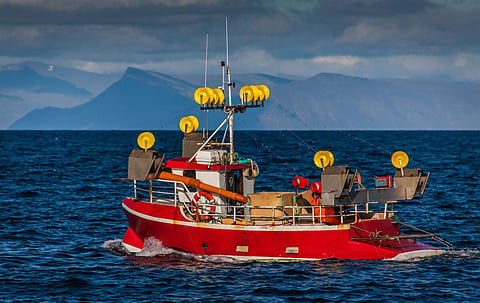

Norway, the EU, Iceland, the UK, the Faroe Islands, and Greenland have agreed on the Northeast Atlantic mackerel fishing quota for 2023. The agreement signed today sets a total quota of 782,066 tons of mackerel for next year, in line with advice from the International Council for the Exploration of the Sea (ICES), which recommended a 2% cut from last year.
The 2022 quota was 794,920 tons, so in practice, the cut recommended last October by ICES scientists as a measure to protect the resource means 12,854 tons less. In a statement released by the Norwegian government, the Minister of Fisheries and Oceans, Bjørnar Skjæran, has welcomed the achievement of the agreement and what it will mean for the sustainable management of the mackerel fishery.
"I am very pleased that we have now finally set a total quota for mackerel", said Skjæran. "This is something we have worked for for a long time and which means a lot for the fishermen, and for sustainable management of this important fish stock", he added.
However, although several rounds of negotiations have been held throughout 2022, the countries involved have yet to reach a full agreement on the issues of stock distribution and the mackerel management plan. This problem has been unresolved for years.
In the meantime, each country has set individual catch quotas, but when all these individual quotas are added up the final result exceeds the limits recommended by ICES, which made them lose the Marine Stewardship Council (MSC) sustainability certificate in 2019.
"While the most recent scientific advice places the mackerel stock within safe biological limits, the ongoing dispute over quota allocations has led to catches repeatedly above the scientific advice. This, coupled with the lack of effective management, has led to the continued suspension of the fishery certificate", then explained Hans Nieuwenhuis, former director of MSC North Europe.
"It is vital that the fishing nations make real progress on effective adoption and implementation of a long-term management plan to ensure a sustainable future for this important species", Nieuwenhuis also said at the time. Three years later, that agreement has not yet been reached. The parties have until March 31 to agree, so several meetings are already scheduled in February and March 2023 to continue working on it.
"We hope that the remaining questions will be resolved at the beginning of next year", said Norway's Minister of Fisheries and Oceans, Bjørnar Skjæran. However, until that time comes, they are still betting on setting a cut unilaterally. "The ministry will nevertheless create a preliminary quota for 2023, so that those who need it can start their fishing already from the turn of the year", dijo Skjæran.
